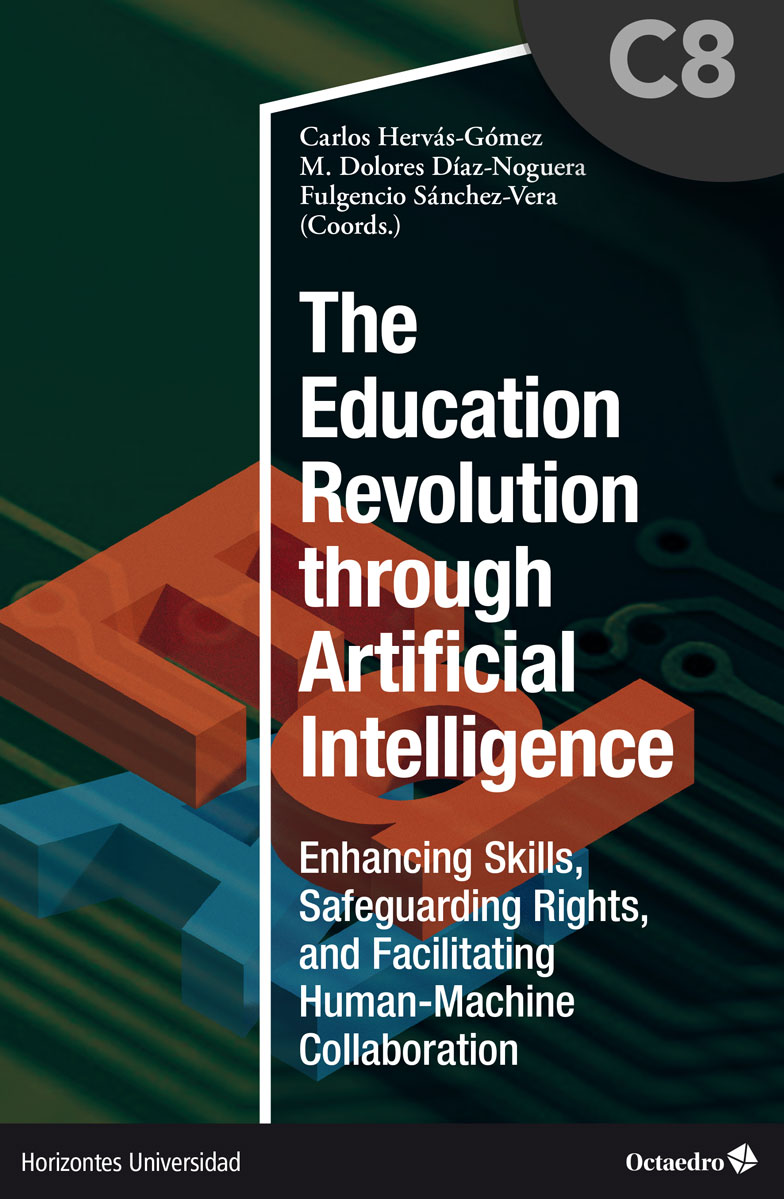FICHA TÉCNICA
Fecha de publicación:
04/11/2024
Doi del capítulo:
Título del libro: The Education Revolution through Artificial Intelligence
URL del libro:
ISBN del libro: 9788410282582
DOI del libro:
Abstract
This chapter discusses the use of generative AI for qualitative data analysis, highlighting innovative techniques such as inductive coding, sentiment analysis and opinion mining, applied via ATLAS.ti software. It focuses on presenting how CAQDAS programs have currently expanded their analytical tools by integrating AI and, to exemplify these, the chapter analyses the discourse and policy on Artificial Intelligence and education found in official documents from UNESCO, a recognized international authority in the field. Reports of international forums on AI and education in the last five years were scrutinized, in addition to other relevant UNESCO documents on Artificial Intelligence and ethics, providing an overview of current areas of interest and concern and developments within the international education community. The chapter thus offers guidelines for mastering new qualitative analysis tools using AI by critically integrating these procedures into conventional methods.
Palabras clave
Autores
PhD María Paz Sandín Esteban
Institut de Recerca en Educació (IREUB), Universitat de Barcelona (UB), Spain
mpsandin@ub.edu
https://orcid.org/0000-0003-1836-6126
PhD Angelina Sánchez Martí
Universitat Autònoma de Barcelona, Spain
angelina.sanchez@uab.cat
https://orcid.org/0000-0002-4719-4688
PhD Ruth Vilà Baños
Institut de Recerca en Educació (IREUB), Universitat de Barcelona (UB), Spain
ruth_vila@ub.edu
https://orcid.org/0000-0003-3768-1105
Cómo citar
Sandín Esteban, M. P., Sánchez Martí, A., Vilà Baños, R. (2024). Integrating Generative AI into Analytical Practices in Qualitative Inquiry. In Hervás-Gómez, C., Díaz-Noguera, M. D., Sánchez-Vera, F. (Coords.), The Education Revolution Through Artificial Intelligence (pp. 117-134). Octaedro. https://doi.org/10.36006/09651-1-08
Referencias bibliográficas
«Lopezosa, C., Codina, L., & Boté-Vericad, J.J. (2023). Testeando ATLAS.ti con OpenAI: hacia un nuevo paradigma para el análisis cualitativo de entrevistas con Inteligencia artificial. Departamento de Comunicación. Serie DigiDoc. PCUV05/2023
Naciones Unidas (2023, May 3). El debate de la ética de la IA no es tecnológico, sino social. Noticias Onu. https://news.un.org/es/interview/2023/05/1520557
Naciones Unidas (2023, July 26). Un informe sobre educación aconseja un uso adecuado de la tecnología en las escuelas. Noticias Onu. https://news.un.org/es/story/2023/07/1522972
Naciones Unidas (2023, September 7). Un niño debe tener al menos 13 años para empezar a utilizar la inteligencia artificial en las aulas. Noticias Onu. https://news.un.org/es/story/2023/09/1523892
Naciones Unidas (2023, November 8). El poder de la inteligencia artificial y sus desafíos en el marco de las Naciones Unidas. Centro Regional de Información. https://unric.org/es/el-debate-de-la-inteligencia-artificial-en-la-onu/
Sabariego, M., Vilà, R., & Sandín, M. P. (2014). El análisis cualitativo de datos con ATLAS.ti. REIRE. Revista d’Innovació i Recerca en Educació, 7(2), 119-133, https://raco.cat/index.php/REIRE/article/view/278698.
Strauss, A., & Corbin, J. (2022). Bases de la investigación cualitativa. Técnicas y procedimientos para desarrollar la teoría fundamentada. Contus.
UNESCO (2019). Beijing Consensus on Artificial Intelligence and education. Outcome document of the International Conference on Artificial Intelligence and Education. Planning Education in the AI Era: Lead the Leap. https://unesdoc.unesco.org/ark:/48223/pf0000368303
UNESCO (2021). International Forum on AI and the Futures of Education. Developing Competencies for the AI Era. Synthesis Report. https://unesdoc.unesco.org/ark:/48223/pf0000377251
UNESCO (2022). International Forum on AI and Educatio. Ensuring AI as a Common Good to Transform Education. https://unesdoc.unesco.org/ark:/48223/pf0000381226
UNESCO (2023a). International Forum on AI and Education. Steering AI to Empower Teachers and Transform Teaching. https://unesdoc.unesco.org/ark:/48223/pf0000386162?locale=en
UNESCO (2023b). ChatGPT and Artificial Intelligence in Higher Education. UNESCO. https://unesdoc.unesco.org/ark:/48223/pf0000385146
UNESCO (2023c, June 8). Una encuesta de la UNESCO revela que menos del 10% de las escuelas y universidades disponen de orientaciones formales sobre IA. Centro de Medios. https://www.unesco.org/es/articles/una-encuesta-de-la-unesco-revela-que-menos-del-10-de-las-escuelas-y-universidades-disponen-de
UNESCO (2023d, October 16). La inteligencia artificial en la educación. Centro de Medios. https://www.unesco.org/es/digital-education/artificial-intelligence»
